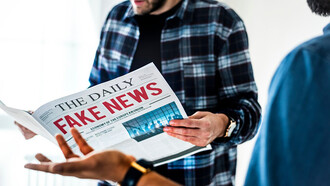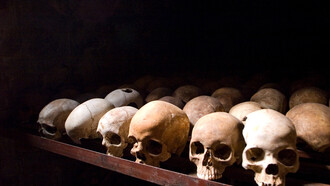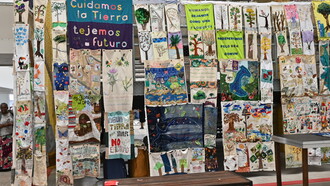I grew up in the farm town of Jefferson, Iowa, population 4,500. Jefferson’s most famous son to date is George Gallup of the Gallup Polls. His family’s house, a block down the street from ours, was what interested me, for it was an eight-sided structure built on the principle that an octagonal shape could best withstand the winds off the prairie.
On the edge of the Gallup property was Council Oak, the biggest and oldest tree in the county. My friends and I spent a lot of time galloping round the Gallup yard, holding council with Indians under the tree and pretending to smoke the peace pipe.
By the time I was old enough to realize that the Gallup family had produced a son who was even more innovative than the house he grew up in, I was no longer interested in the house, and I did not yet appreciate the impact young George was having on the politics of this country.
The invention of polling was ingenious. George determined mathematically how people will vote in an election by asking specific questions of a small number of likely voters. The group must represent the larger population – how many female/male voters, their ages, race and so forth. Then the pollsters figure the margin of sampling error, then the wording of the questions and answers, then they start calling across the nation. It can take seven or eight thousand calls to wind up with the thousand needed answers.
Among the hundreds of pollsters who copied Gallup, it has been his preciseness and devotion to his scientific formula that has kept him leading the pack. From the beginning, when he polled 50,000 people across the nation for the 1936 presidential contest between Franklin Roosevelt and Alf Landon, up to the year 2008, Gallup correctly predicted all all but one presidential winner.
First named American Institute of Public Opinion and then Gallup Polls, the company branched out, polling in 160 countries over the years, mostly for politicians, and has represented 98 percent of the world population, polling in one area of concern or another, depending on what the countries hired him to find out.
George Gallup asking plain folks their opinions was a revolutionary exercise and did much for the idea of American democracy’s revolution “of, by and for the people.” For nearly a hundred years now, the field of polling, whether political or commercial, has saturated the world, and Gallup’s brainstorm has almost become a nuisance and a peril.
Not all pollsters operate on a level of integrity the likes of Gallup, so Americans are being told many things these days, depending on who is paid to poll. Gallup makes little money on it but has accumulated a data base over 80 years, a valuable piece of business for the sake of history and the idea of the power of the people getting to speak out to answer, in person, pertinent and thoughtful questions about a coming election.
The company has branched out globally into an analytics and advice firm that helps leaders around the world organize solutions to critical problems.
As with everything else, it is the slick operators, the conmen, the liars, cheats and quick-money grubbers who can ruin a valuable tool such as polling. Now, the marginals of the political and commercial sides of the world start their own polling companies and scheme to get the answers they want, not always the answers that are truth.
If you’re a poll watcher, watch for whom to trust. The results of manipulative polling can swing an election.















